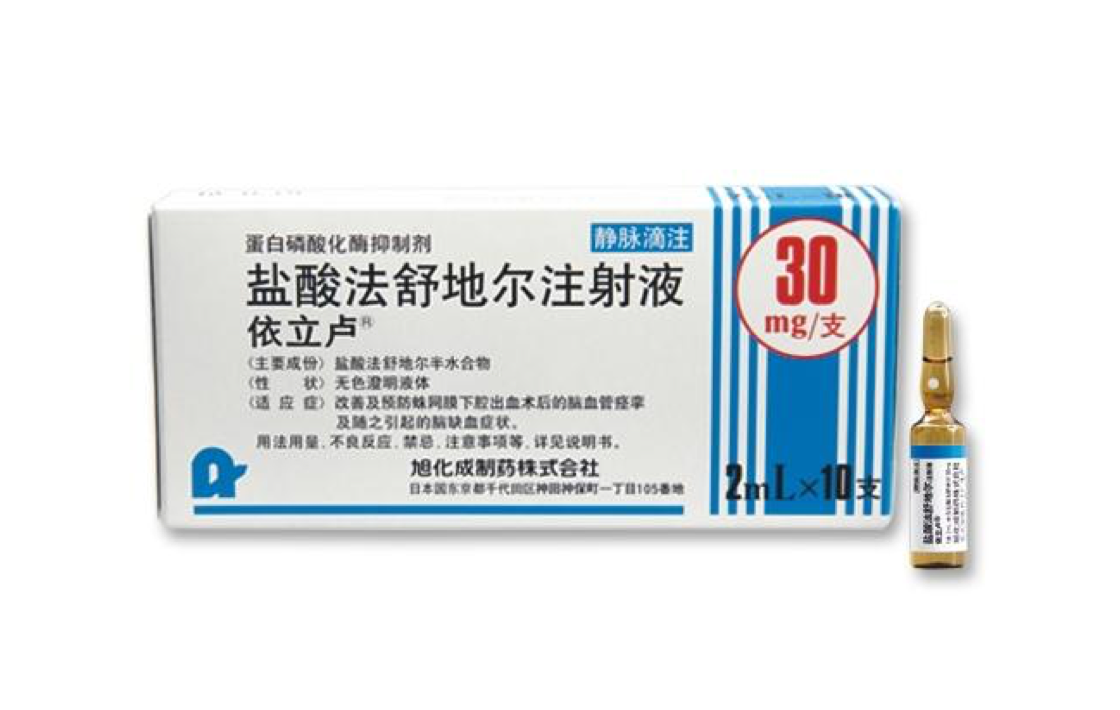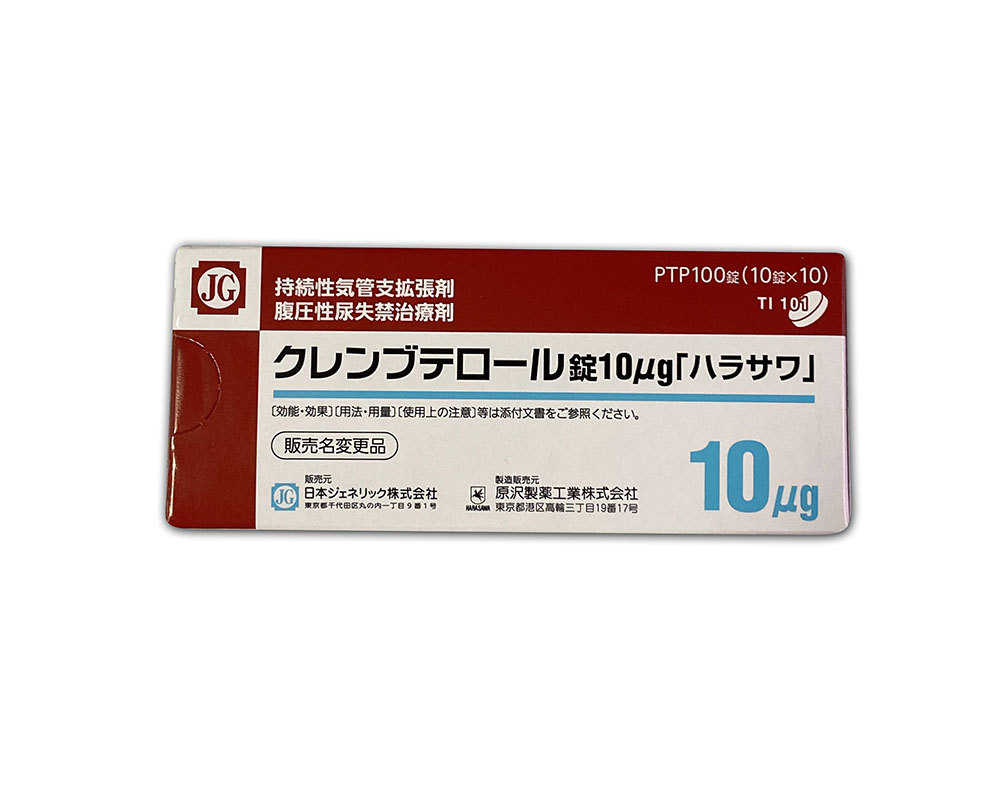Eril (fasudil hydrochloride) vs Clenbuterol ()
Eril (fasudil hydrochloride) vs Clenbuterol ()
Eril (fasudil hydrochloride) is a rho-kinase inhibitor primarily used to prevent and treat cerebral vasospasm following subarachnoid hemorrhage and is under investigation for other vascular-related conditions. Clenbuterol, on the other hand, is a beta-2 agonist that is occasionally used off-label for its bronchodilator properties in respiratory conditions like asthma, but is not approved for human use in many countries due to its potential for serious side effects. When deciding between the two, it is essential to consider the specific medical condition being treated, as Eril is focused on vascular issues, while Clenbuterol is associated with respiratory therapy and carries a higher risk profile.
Difference between Eril and Clenbuterol
| Metric | Eril (fasudil hydrochloride) | Clenbuterol |
|---|---|---|
| Generic name | Fasudil hydrochloride | Clenbuterol |
| Indications | Cerebral vasospasm, subarachnoid hemorrhage, chronic heart failure | Asthma, COPD, other breathing disorders; off-label for weight loss and performance enhancement |
| Mechanism of action | Rho kinase inhibitor | Beta-2 agonist |
| Brand names | Eril | Spiropent, Dilaterol, Ventipulmin |
| Administrative route | Intravenous | Oral, inhalation |
| Side effects | Headache, dizziness, hypotension, tachycardia | Tremors, nervousness, headaches, increased heart rate, muscle cramps |
| Contraindications | Hypersensitivity to fasudil or any component of the formulation | Hypersensitivity to clenbuterol or any component of the formulation, tachyarrhythmia, thyrotoxicosis |
| Drug class | Rho kinase inhibitor | Beta-2 adrenergic agonist |
| Manufacturer | Asahi Kasei Pharma Corporation | Varies by brand and region |
Efficacy
Introduction to Eril (Fasudil Hydrochloride) in ALS
Eril, known generically as fasudil hydrochloride, is a Rho kinase inhibitor that has been explored for its potential therapeutic effects in various diseases, including cerebrovascular conditions. In the context of Amyotrophic Lateral Sclerosis (ALS), fasudil hydrochloride's efficacy has been evaluated due to its neuroprotective properties. ALS is a progressive neurodegenerative disease that affects nerve cells in the brain and spinal cord, leading to loss of muscle control. While fasudil is not primarily indicated for ALS, research has investigated its off-label use in slowing the progression of this debilitating disease.
Efficacy of Fasudil Hydrochloride in Preclinical Studies
Preclinical studies on animal models of ALS have shown that fasudil hydrochloride may have beneficial effects on motor neuron survival and function. These studies suggest that fasudil's inhibition of Rho kinase activity could reduce neuronal cell death and inflammation, which are significant contributors to the progression of ALS. However, it is important to note that results from animal studies do not always translate directly to human patients, and further clinical research is necessary to establish the efficacy of fasudil in treating ALS.
Clenbuterol and Its Potential Role in ALS
Clenbuterol is a β2-adrenergic agonist primarily used for breathing disorders such as asthma. Its potential off-label use in ALS has been considered due to its anabolic effects, which could theoretically mitigate muscle wasting associated with the disease. However, the efficacy of clenbuterol in ALS patients has not been conclusively demonstrated. While some studies have indicated that it might help in preserving muscle mass and strength, the evidence is not robust enough to support its widespread use for ALS. The drug's efficacy in this context remains an area of ongoing investigation.
Conclusion and Current Clinical Understanding
As of the current clinical understanding, neither fasudil hydrochloride (Eril) nor clenbuterol is approved for the treatment of ALS. While both drugs have shown potential in preclinical studies or theoretical models, their efficacy in human ALS patients is not well-established. Clinical trials and further research are required to determine whether these medications can offer significant benefits in managing ALS symptoms or slowing disease progression. Patients and healthcare providers are encouraged to rely on evidence-based treatments and to approach off-label drug use with caution, considering the potential risks and benefits.
Regulatory Agency Approvals
Eril
-
Pharmaceuticals and Medical Devices Agency (PMDA), Japan

Clenbuterol
-
Pharmaceuticals and Medical Devices Agency (PMDA), Japan

Access Eril or Clenbuterol today
If Eril or Clenbuterol are not approved or available in your country (e.g. due to supply issues), you can access them via Everyone.org.
How it works

Make an enquiry
Choose the medicine you want to buy, answer a couple of questions, and upload your prescription to speed things up. We’ll get back to you within 24 hours.


Make an enquiry
Choose the medicine you want to buy, answer a couple of questions, and upload your prescription to speed things up. We’ll get back to you within 24 hours.


Breeze through the paperwork
We'll guide you through the required documents for importing unapproved medicine, ensuring you have all the necessary information.


Get a personalized quote
We’ll prepare a quote for you, including medicine costs and any shipping, administrative, or import fees that may apply.


Receive your medicine
Accept the quote and we’ll handle the rest - sourcing and safely delivering your medicine.

Some text on this page has been automatically generated. Speak to your physician before you start a new treatment or medication.
Let's talk
If you have any questions, call us or send us a message through WhatsApp or email:
Contact us




